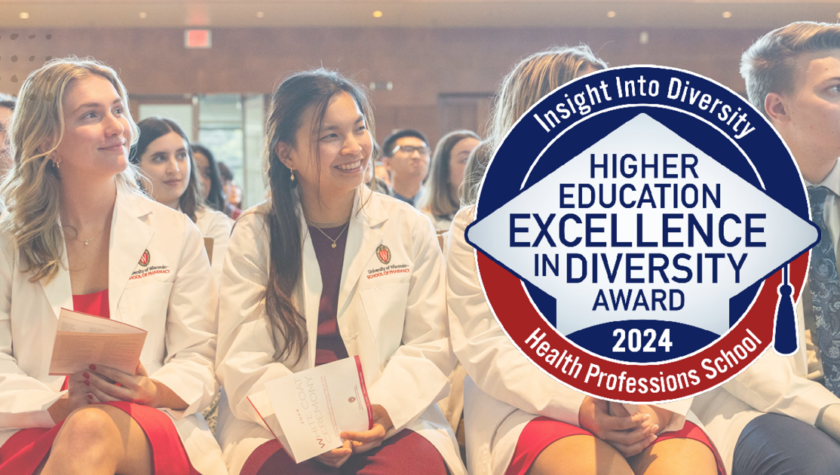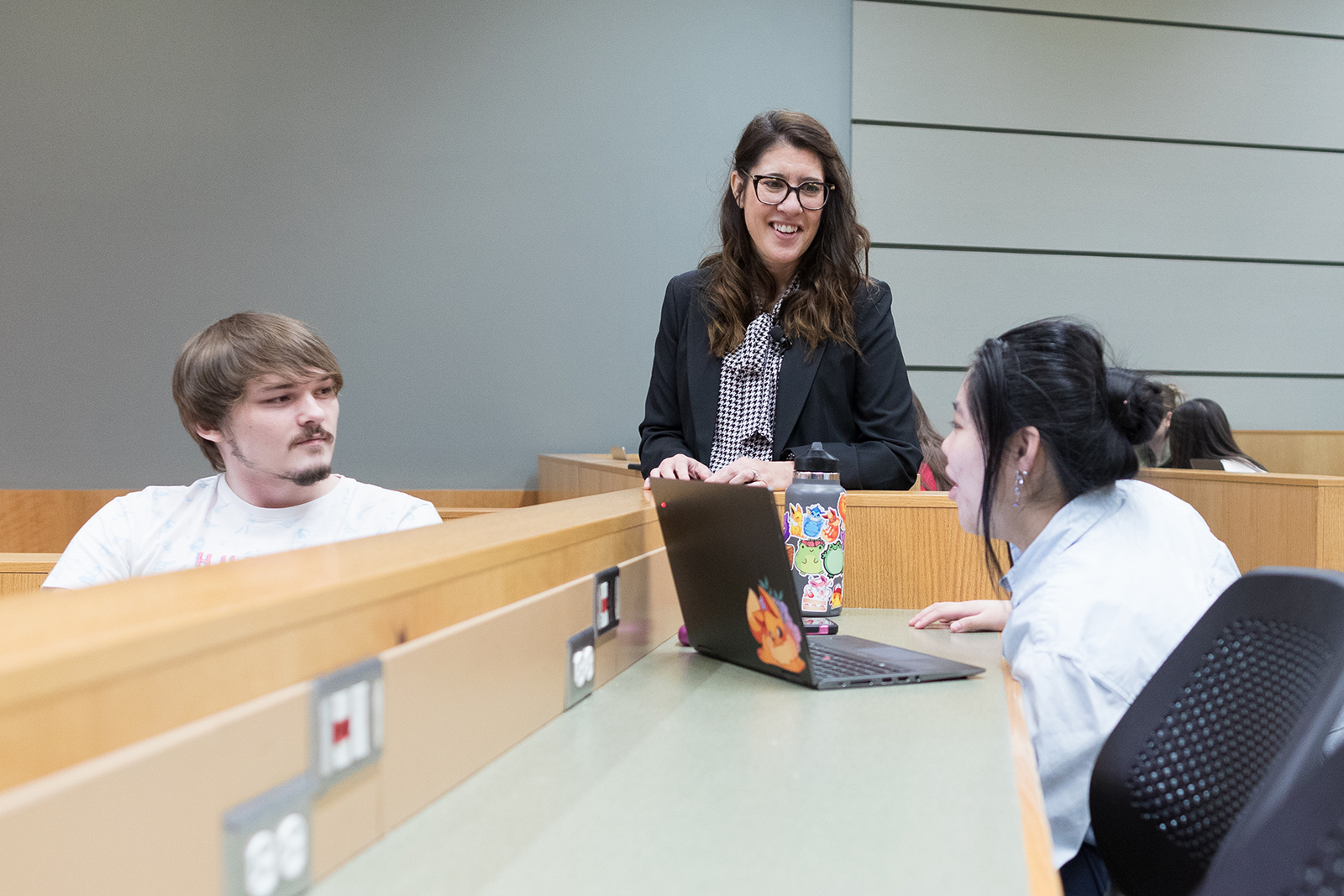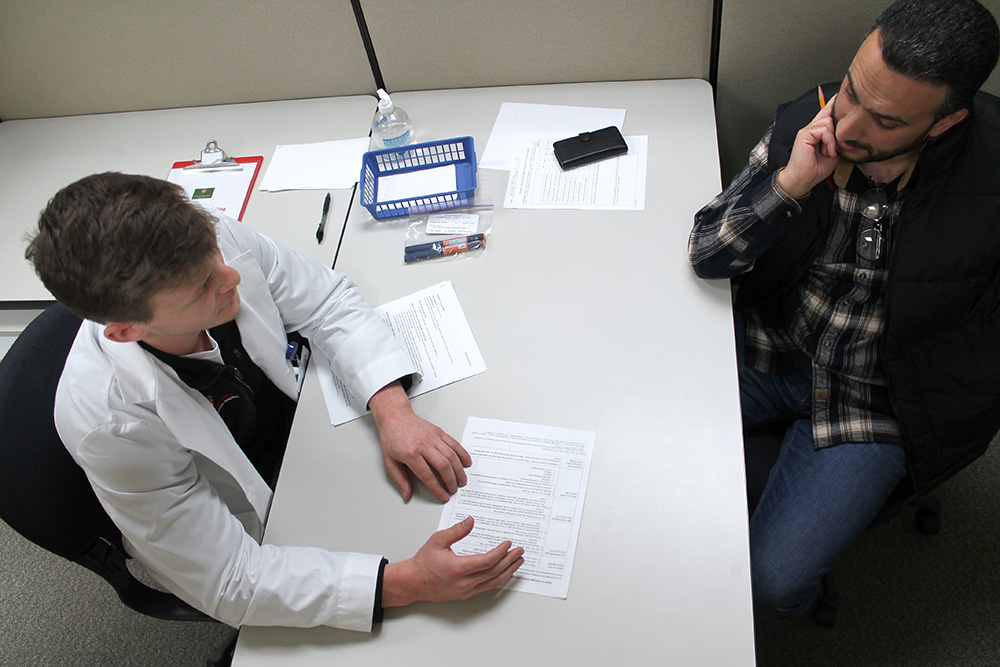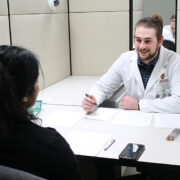
10
October

For the second consecutive year, the School of Pharmacy is honored with the Higher Education Excellence in Diversity Award, recognizing its work in inclusive hiring and education
By Archer Parquette
For the second year in a row, the University of Wisconsin–Madison School of Pharmacy has set a standard of excellence in diversity, equity, and inclusion (DEI). In October, INSIGHT into Diversity magazine announced that the School of Pharmacy received a 2024 Health Professionals Higher Education Excellence in Diversity (HEED) Award.
“As a School, we aim to help diverse ideas, patients, and practitioners flourish, because that’s how we will advance the profession and the health of every Wisconsinite,” says Steve Swanson, dean of the UW–Madison School of Pharmacy. “Earning our second HEED Award is a wonderful encouragement that we’re making progress on our goal.”

The School of Pharmacy, which was recognized alongside UW’s School of Nursing and School of Veterinary Medicine, is one of only six pharmacy schools in the nation to receive the HEED Award, which celebrates colleges that “demonstrate an outstanding commitment to diversity and inclusion.”
“I was very excited to receive this recognition for a second year in a row,” says Lisa Imhoff, the School’s associate dean for Diversity, Equity, and Inclusion. “We have such a great group of colleagues and supporters doing this work here, and it’s rewarding to see them all recognized.”
The award-winning work was led by Imhoff and faculty and staff from across the School.
“This award demonstrates that what we’re doing is making a meaningful impact,” Imhoff says. “Our students actually go out into the world and make a difference with patient populations.”
From the ground up
The School of Pharmacy’s commitment to diverse perspectives begins with faculty and staff. Jordan Allen, the School’s Human Resources associate director, was one of the forces behind the implementation of the School of Pharmacy’s Inclusive Hiring Guide. The guide provides core principles that HR follows when recruiting and assessing potential hires.
“The golden rule in this work is — if I were an applicant or a new employee, what would I like?” Allen says. “The principles we adhere to in the process help ensure we treat every applicant the same.”
“As we continue this work as a school, we’ll continue to achieve better outcomes for our students as well as for their future patients.”
—Lisa Imhoff
That mindset starts from the very beginning of the hiring process. For example, identifying information is removed from applications before they are reviewed to avoid potential bias.
Allen also helped implement the creation of a rubric to be used when screening for each position — each applicant is scored based on set job requirements, for a consistent and measurable review.
“These processes are designed to ensure we’re bringing in the best people for the job, regardless of their background, to join the School of Pharmacy community,” says Allen.
Preparing potential pharmacists
Even before applying to the School of Pharmacy, UW undergraduate students in the Pharmacy First-Year Interest Group (FIG) participate in an activity to examine their own social identities — including aspects such as gender, socioeconomic status, race, and age — and discuss how it has affected their lives. From there, they reflect on their own understanding of equity and inclusion through discussions about health disparities and health literacy. They also examine their values and biases and how they may affect future patient interactions.
“We want to reinforce the importance of a commitment to serving diverse populations,” says Amy Zwaska, the director of the Pre-Pharmacy Advising Program.

Through the FIG experience, guest speakers — including faculty and alumni practitioners — talk with pre-pharmacy students about the many ways that pharmacists can help move the needle for populations facing disparities in health outcomes. For example, Professor of Pharmacy Practice Eva Vivian has presented about her work to improve diabetes prevention and management among African Americans — who are twice as likely to die from the disease than their white counterparts — through culturally relevant interventions and peer mentors.
Students also take on a public health project of their own during the semester, researching the social determinants of health related to issues like diabetes or smoking. And once pre-pharmacy students are ready to enroll in the School of Pharmacy, Zwaska helped revamp the PharmD application essay that asks students to reflect upon how their experiences have helped them develop the skills to care for individuals across a range of backgrounds and identities.
“This is such essential work,” Zwaska says. “I think that all of the people who contributed to this award would still be doing this work regardless of the recognition because it’s so important to us.”
Scholarships and opportunities
As future pharmacists apply to the PharmD program, the School aims to remove barriers to a pharmacy education. For example, to reduce the financial burden of travel, the School offers both virtual and in-person interview options to PharmD applicants. Affording tuition is another obstacle that the School aims to tackle, with the help of alumni, friends, and donors.

“If we want to continue to matriculate the best and the brightest PharmD students from Wisconsin and across the country, these scholarships really help us do that,” says PharmD Admissions Manager Jannelle Frey, who is vice chair of the School’s Scholarship Committee. “It’s great to be able to award our talented, hardworking students and reduce their financial burden so that they can focus on academics and other opportunities.”
The School of Pharmacy awards many scholarships to students based on merit, financial need, and other criteria. The ongoing Pharmacy Forward campaign aims to raise an additional $7 million in scholarship support to make pharmacy school more accessible for students.
“The generous support we have from our donors and alumni makes all of this possible,” says Professor of Pharmacy Practice Andrea Porter, chair of the Scholarships Committee. “Awarding scholarships to support our students is such valuable work, and it’s incredibly important to recognize that our donors make it possible.”
An evolving curriculum
As part of the School’s Strategic Plan, all PharmD students must graduate ready to serve medically underserved populations.
“We measure the skills, knowledge, behaviors, and values that we want our students to demonstrate upon graduation,” says Professor of Pharmacy Practice Casey Gallimore, who chairs the School’s Curriculum Committee. “When it comes to DEI, one important educational outcome is making sure our students understand health disparities.”

To help student pharmacists understand and appreciate some of the barriers to patient care that can create health disparities, the School’s PharmD students go through a poverty simulation, immersing them in the daily challenges low-income patients face. All PharmD students also complete a clinical rotation in a pharmacy that serves medically underserved populations, and the School’s Communications Lab includes units about counseling patients across a language barrier and counseling patients through safer religious fasting.
“I’m very proud of this award,” Gallimore says. “As a School, we’ve been making collective efforts to better embrace equity and inclusion so that when our student pharmacists go out and practice, they are prepared to engage with and serve diverse and marginalized populations. I’m very proud of the strides we’ve made thus far.”
Imhoff echoes Gallimore’s sentiment and is already looking forward to continuing to improve the School’s DEI efforts.
“It’s not so much about the award to me, but about the ongoing work we’re doing. Diversity breeds innovation — different ideas, different experiences,” says Imhoff. “As we continue this work as a School, we’ll continue to achieve better outcomes for our students as well as for their future patients.”




